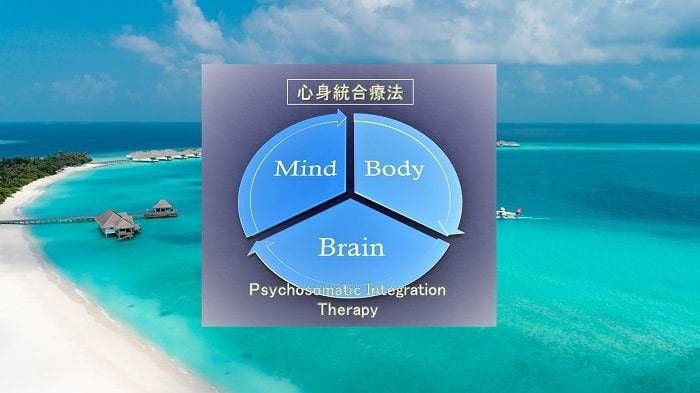
マスクニケーションとは?
マスクニケーションとは当会による造語で、「
人と人とのコミュニケーションにあっては単に言葉のやり取りだけでなく、アイコンタクトや微表情解析など様々な側面が知られています。認知科学で有名なメラビアンの実験は、非言語コミュニケーション(ノンバーバル・コミュニケーション)がいかに重要であるかを世に知らしめました。
メラビアンの実験…
人間のコミュニケーションはその半分を視覚情報に依存しています。上記メラビアンのほかにも、非言語情報(声のトーンや表情の変化)の重要性を示唆する報告は多数あり、発達心理学においても、赤ちゃんの脳が母親の表情に反応することが知られています。
ヒトが社会性を獲得する上で、ノンバーバル・コミュニケーションが果たす役割は本当に大きいのです。
ところが日本においては、そうしたコミュニケーション能力が奪われかねない事態に直面しています。コロナ禍がもたらしたマスクニケーションは、後世にわたって社会の在り様を変えてしまう危険性を孕んでいるのです。
既に社会問題と化している!?
マスク二ケーションには様々問題点が潜んでいます。加齢とともに音の高周波成分が聴こえなくなる現象に象徴されるように、聴力には年齢や体質による個体差があります。
コロナ禍ではマスクとアクリル板の二重の遮蔽効果によって、相手の話が聴き取りづらいと訴える年配の方が増えています。高齢者はマスク&アクリル板のコミュニケーションに大きなストレスを感じており、ときにイライラが爆発して切れてしまうことも…。
眼球の機能が正常であっても、映像を処理する神経回路が壊れると視力が失われます。これは盲視(ブラインドサイト)と呼ばれる状態で、網膜を介した映像は脳内に入力されるものの、意識に捉えられないため「見えない」のです。相手の顔は見えないわけですが、
これが意味するのは、
相手の喜怒哀楽を感じることができない世の中は、一歩間違うと人々の攻撃性を高め、諍い(いさかい)に発展しやすい…。相手の気持ちを察することができないと、過剰に恐れたり、白か黒かという極端なジャッジに繋がったりする恐れがあるのです。
顔の造作や表情がまるで違う異星人(エイリアン)と遭遇した状況を想像してみてください。私たちにとって最大の恐怖は相手の感情が読み取れないことだと思いませんか?
米国の心理学者ポール・エクマンが示した「感情と表情の関係性」は人種によって異なることが分かっています。同じ人種同志では察する(感じる)ことができても、異なる人種のあいだでは察する(感じる)ことがむつかしい場面があるということです。
相手の顔が見えにくい
医療現場においても隠れたリスクがあります。医療者にとって、患者さんの顔を見ることで得られる情報はいろいろな意味で重要です。パソコン画面しか見ないような診察は論外として、視診をきちんと行う医師にとって、相手の顔が見えない診察はリスクでしかありません。つまり小さな変化を見逃す危険があるのです。
呼吸や嗅覚といった生理機能に与える影響も様々な方面から指摘されています。なかでも嗅覚への刺激が減ることによる脳へのダメージは、認知症予防の観点からも看過できないものがあります。
嗅覚と海馬の関係を調べた実験においても、ヒトが様々な匂いを感じて生活することの重要性が示唆されています。
嗅覚の特異性については「スメルハラスメント(香害)の認知科学」をご参照ください。
マスク依存症は日本の少子化を加速させかねない
総合臨床というフィールドでは、発達個性(発達障害)に見られる神経活動の偏りは強迫症(旧強迫性障害)や依存症といった精神疾患の発症リスクを高めることが知られています。
そうした現場ではコロナ禍早期よりマスクを外せなくなる人々の出現が危惧されていました。
残念ながらこれは現実のものになりつつあります。「もはやマスクなしの生活は考えられない」と感じている人が増えており、このままでは
対人接触におびえる心性を強化させてしまった人々、とくに幼少期や思春期、学生時代にコロナ禍を過ごした世代への影響は決して無視できないと、筆者は考えます。彼や彼女たちが将来的にどのような結婚観を抱くのか、パートナーとの性交渉にどのような影を落とすことになるのか…。
社会経済学においては、著しい人口減少は国際競争力の低下に繋がりやすいことが知られています。日本はまさしくその典型例(国際競争力ランキングがかつての1位から30位台に転落)であり、少子化を防ぐことは国の行く末を決める最重要テーマのひとつです。
そういう意味においても、マスクニケーション対策は喫緊の課題と言えるかもしれません。
空気を読み過ぎる日本人~少数派になることを忌避する人々~
国際社会において、日本人の交渉能力が高いと評価される場面は少ないようです。大陸と地続きではない、陸地に国境を持たない国のハンデという見方があります。
その一方で、国民が一致団結する力、まとまる力は強いという特性があります。和を以て貴しとなすという精神文化に象徴されるように、人々が一つの方向にまとまって進む力はソーシャル・レジリエンスの源になっていると考えられます。
しかしそれは同時に諸刃の剣になっていて、たとえば世間の空気を読んで多数派に属していたいという希求、そうしたレールに乗ることへの無意識に近い安心感…。このような心性を抱える人々の割合が高いと同時に、「多数派は常に正しく、少数派は間違っている」という認知バイアスに繋がっているのではないか。
多数決という仕組みは手段のひとつであって、必ずしも「多数派=善または正」とは限らないわけで、また「少数派=悪または誤」とも限らないのです。
第二次世界大戦時の日本軍幹部の回想「戦争を終わらせたくても、終わらせられない空気に満ちていた…、
当会は集団同調性バイアスのなかでも、とくに無意識下での「多数派=正義」「多数派=正当」といった思い込み(ヒューリスティックあるいはアンコンシャス・バイアス)を
個人対個人のディベートが苦手な日本人、徒党を組むことでその短所がカバーされるというある種の集団心理。個の力では勝てなくとも、チームの結束力で勝つことができるというメンタリティ。結果的にそれらが日本人独特の「空気を読み過ぎる力」に繋がっているのではないか。
集団性を重視する日本の文化は長所でもあり、ときに短所にもなり得るというのが筆者の見方です。なお意見には個人差があります。
予防や対策について~まずは自国の個性を知ること~
条件付き確率ならびに感度&特異度に対する深い理解と認識を持っている人は“PCR陽性=感染者”ではないことを知っている。→参照動画
まず押さえるべきは欧米との違いです。日本とは比較にならないほどのPCR陽性者が出ている中で、マスク規制が解除されると同時に外す人が多数派になっています。
そうした海外の報道を目にした日本人の多くが「信じられない」という感覚になります。この人たちは怖くないのか?なんでそんなことができるんだと。しかし欧米人のこうした行動には理由があります。
脳内のセロトニン・トランスポーターの数が多い人の割合が高いのです。つまり
一方の日本人は、上記に掲げた欧米人の遺伝子的特徴とは真逆であることが分かっています。セロトニン・トランスポーターの数が多い人の割合が極端に低く、DRD4-7R受容体遺伝子を持つ人も極めて少ないのです。
要するに
こうした遺伝子の特徴から言えるのは、
筆者は発達障害という通称に代えて、「なるべく発達個性と呼びましょう!」という活動を行っていますが(正式には神経発達症)、
“国家としての個性”を考える上で、梅棹忠夫氏の「文明の生態史観」は欠かせない名著です。興味のある方は一読をお薦めします。自然災害による被害額の調査によれば、全世界の被害総額の2割以上を日本が占めています。日本は世界有数の自然災害大国だと言えるのです。
日本人の遺伝子には、こうした災害に見舞われ続けてきた経験値が刻まれていると考えられ、結果としてこれがリスク管理を強める遺伝子を形成していったのではないか…。これによって不安遺伝子や冒険遺伝子のような特徴を持つに至ったのではないか。
したがって
まずは自分たちのことを知るところから始める、これがマスク依存症の予防や対策の“はじめの一歩”だと言えるのではないでしょうか。
こうした背景を知る国民が一人でも増えていくことで、健全なあるべき姿としてのアフターコロナが実現できると、筆者は考えます。
認知科学統合アプローチ(COSIA)に興味のある方へ
画像ラベリングと痛みの原因診断が乖離する現状において、世界疼痛学会(IASP)は痛みの定義を改訂し、「痛みの感情起源説」にシフトしています。
COSIAに興味のある方は是非一度「医療者・セラピスト専用サイト」にお越しください。貴殿のご参画をお待ちしております。


